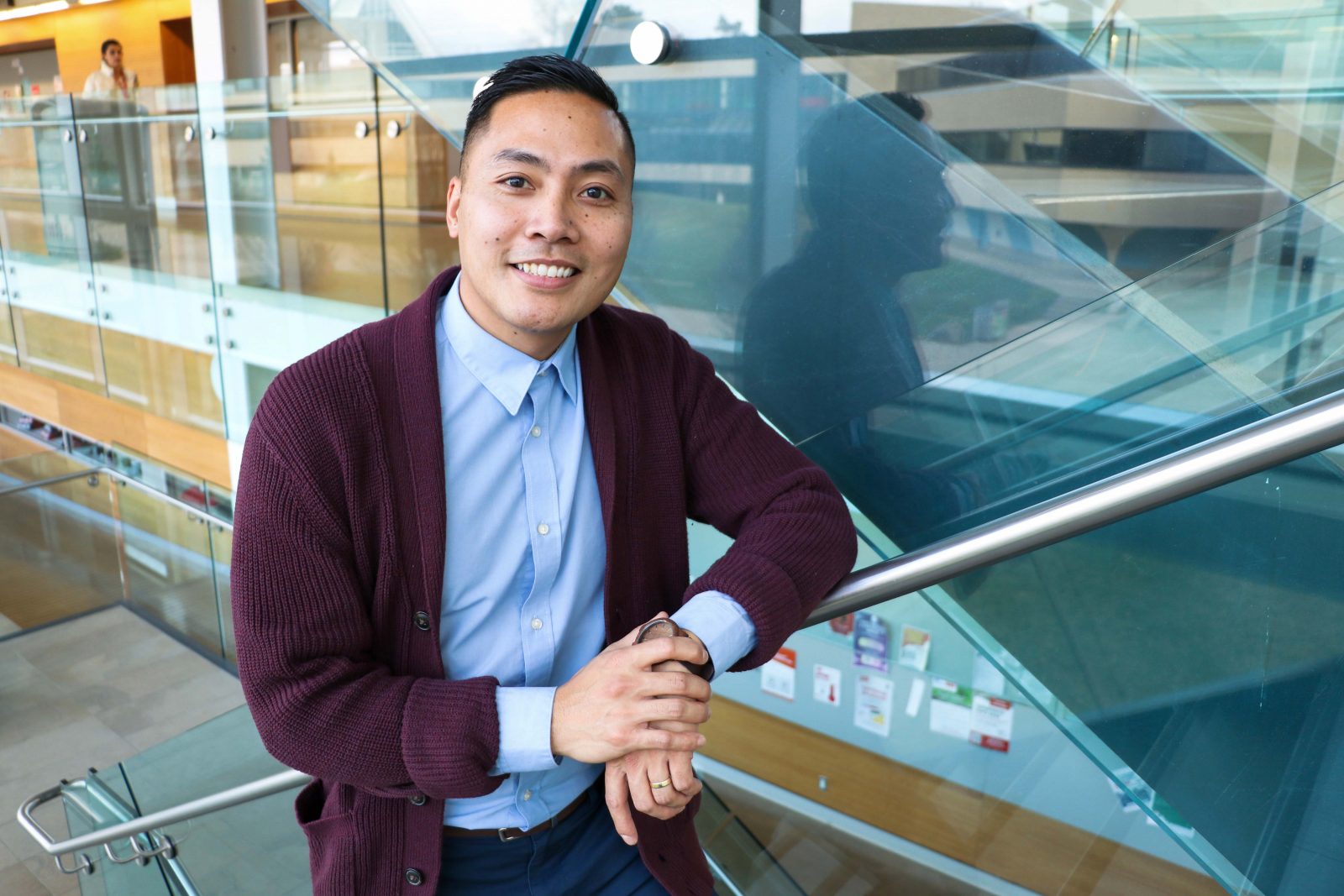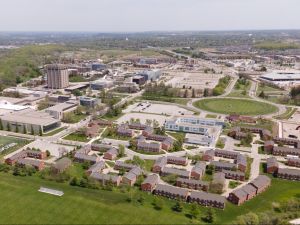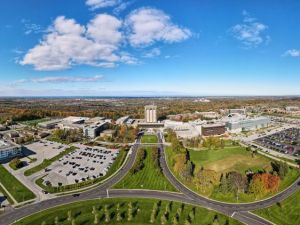 Associate Professor of Kinesiology Val Fajardo studies how proteins and enzymes interact to determine the condition of muscles. As Tier 2 Canada Research Chair in Tissue Remodelling and Plasticity throughout the Lifespan, his research leads to drugs and treatments that optimize muscle health and physiology.
Associate Professor of Kinesiology Val Fajardo studies how proteins and enzymes interact to determine the condition of muscles. As Tier 2 Canada Research Chair in Tissue Remodelling and Plasticity throughout the Lifespan, his research leads to drugs and treatments that optimize muscle health and physiology. The federal government’s Canada Research Chairs program invests up to $311 million per year to attract and retain some of the world’s most accomplished and promising minds. Chairholders are recognized to be national and international experts in the fields of engineering and the natural sciences, health sciences, humanities and social sciences. Brock University has 10 active Canada Research Chairs, with more to be announced. This monthly series profiles the work, and lives, of Brock’s Chairholders.
Associate Professor of Kinesiology Val Fajardo’s work has reached dizzying heights since he was named one of Brock’s Canada Research Chairs a little over three years ago.
As Tier 2 Canada Research Chair in Tissue Remodelling and Plasticity Throughout the Lifespan, he and his team are studying physiological processes that fuel muscle development or decline. Exercise and good nutrition contribute to favourable physiological changes that strengthen muscles, while inactivity, aging and disease are among factors leading to muscle weakness.
The team is especially interested in glycogen synthase kinase 3 (GSK3), an enzyme strongly associated with muscle and metabolic deterioration. Blocking GSK3 levels will improve musculoskeletal and cardiovascular health and metabolism, says Fajardo.
Fajardo and his team have had a number of successes in recent years. In 2022, the Canadian Space Agency awarded the group $150,000 to investigate how to prevent space travellers from experiencing muscle loss and weakness, bone fragility and cognitive decline, which occur when spending time in space.
“We’re trying to optimize muscle health and physiology to improve whole body health under conditions of spaceflight, aging, obesity, Duchenne muscular dystrophy and heart disease,” he says.
The space research also sheds light on how older adults in particular regain their strength, mobility and quality of life on Earth, says Fajardo, adding that the space model “is widely considered to be an accelerated aging model.”
Fajardo has also spent the past month at the Roskamp Institute in Florida, where he and his team are studying the muscles of mice that travelled to the International Space Station as part of NASA’s RR-20 mission at the end of 2023.
“Our work will determine whether spaceflight negatively affects female muscle strength and fatigue while also determining how quickly it may or may not recover after returning from space,” he says.
Through a partnership with AMO Pharma Inc., Fajardo and his team successfully tested the effectiveness of the U.K.-based company’s drug, Tideglusib, to treat a more severe model of Duchenne muscular dystrophy. One study, led by master’s student Bianca Marcella, is currently under review for publication.
A passion for helping people has always been at the heart of Fajardo’s (BSc ’09, MSc ’12) studies and research. At the start of his undergraduate days at Brock University, he initially wanted to become a medical doctor so that he could provide care to his beloved grandmother, who suffered from diabetes.
As he learned about the disease, Fajardo realized the importance of healthy muscles in regulating blood sugar levels, which fuelled his interest in muscles.
“In fact, muscles are so important for maintaining healthy blood sugar levels, that individuals living with diseases that primarily affect muscles, such as Duchenne muscular dystrophy, will often have insulin resistance and increased risk of developing type 2 diabetes,” he says.
Fajardo continued his master’s under the supervision of Professor of Health Sciences Paul LeBlanc and earned his PhD at the University of Waterloo, where he also became interested in space research.
He returned to Brock University in 2016 as a postdoctoral fellow under LeBlanc’s supervision, setting up a research program focusing on GSK3 and muscles and forging relationships with a wide range of researchers in the Faculties of Applied Health Sciences and Mathematics and Science.
“The success of my Canada Research Chair is so strongly tied to the networks that I made here at Brock; I’m so fortunate to have such talented researchers as colleagues,” says Fajardo.
He also says what he values most about his Canada Research Chair is that it enables him to train the next generation of researchers.
“The position gives me the financial capabilities to let my students grow, reach their potential, and allow them to spearhead projects,” he says. “The reason the projects are where they are now is because of the opportunities that the Canada Research Chair has provided to my students.”








